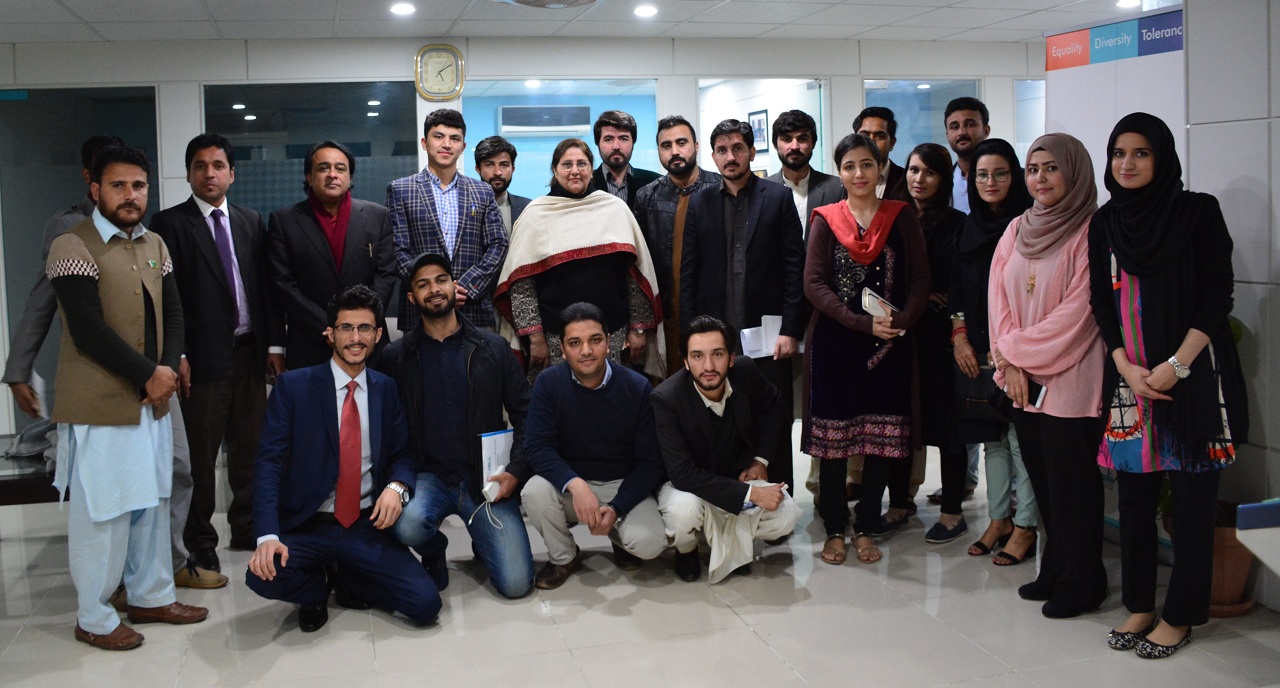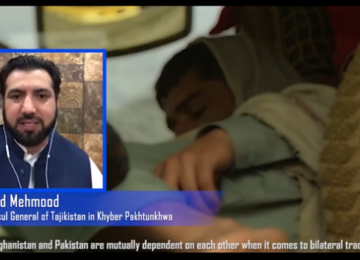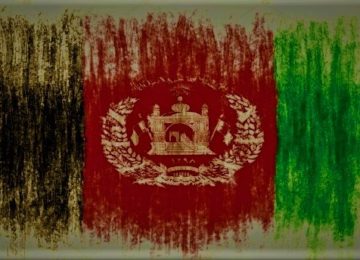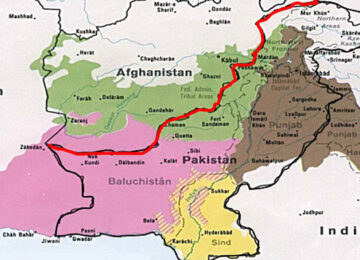December 15, 2017
The Center for Research and Security Studies (CRSS) conducted a training workshop on “Building a Culture of Empathy and Compassion” for young participants from Pakistan and Afghanistan on Wednesday, December 13, 2017. The workshop was designed as part of CRSS efforts under its Afghan Studies Center (ASC) initiative to bring together young minds from both countries on one platform to interact and exchange ideas from their personal experiences as a way to mitigate the unnecessarily growing mistrust between the two peoples.
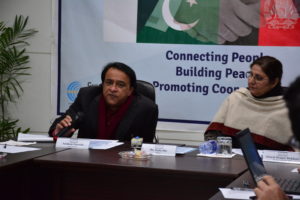
Ms. Naila Mir, a reputed counselor, facilitator and trainer, with fifteen years of experience in workshop facilitation focused on gender, abuse, crisis and trauma intervention as well as support group programs, was the chief guest and trainer in the workshop. Participants comprised 18 young Afghans and Pakistanis studying in various universities across the country including Quaid-i-Azam University, International Islamic University Islamabad, Bahria University, University of Lahore, Arid University and Karakorum International University, as well as some young working professionals. Frank Sun, a Chinese researcher also attended the workshop as an observer.
The workshop began with a welcome address by Ms. Sitwat Waqar Bokhari, Program Consultant at CRSS, who apprised the participants with the objectives of Afghan Studies Center which emerged from the recommendations of CRSS’ track II/1.5 diplomacy initiative Beyond Boundaries that has focused on improving the bilateral relations between Pakistan and Afghanistan since 2015. Ms. Naila was then invited to commence the session on the theme whereupon she asked the participants to introduce themselves and share their preliminary understanding about the subject theme.
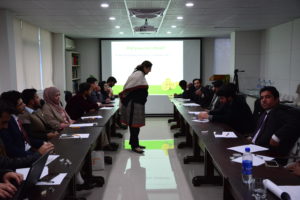
Ms. Naila formally started the session with thought-provoking questions such as ‘how do you empathize when someone’s loved one dies? Or when someone you know is diagnosed with cancer? She went on to ask several similar questions including ‘how would you respond if your younger sibling was bullied at school or if you come across a child beggar begging in the rain and cold?’ As the series of questions continued, the participants began sharing their natural reactions. Some said they would console those grieving by saying positive and hopeful things while others said they would give them a hug. Ms. Naila told them that what all the participants were suggesting was sympathy and not empathy. Then she distinguished between the two terminologies; defining sympathy as a feeling of compassion, sorrow, or pity for the hardships that another person was going through and empathy as the experience of understanding another person’s condition from their perspective. Empathy, she said, was placing oneself in the shoes of the one suffering and attempting to understand how they feel. Though she said it was never possible to fully understand how someone felt unless someone had experienced the same situation him or herself. She also defined a third type of feeling called apathy, meaning a lack of emotion or regard for someone’s suffering, which she said was growing in the youth of today due to the increased use of technology and obsession with materialism.
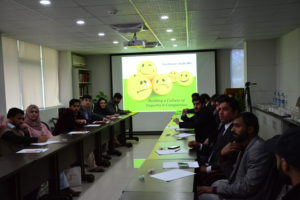
The workshop encompassed a series of interactive exercises probing the participants from both sides to critically evaluate their definition of empathy and why they believed it was lessening with passing time. Increasing prejudices, being judgmental and a growing trust deficit in the new generation of both countries were few of the reasons for lack of empathy and compassion that the participants pointed out. The trainer went on to explain that prejudices were socially constructed and based on generalized views not necessarily created by one’s own personal experiences. Prejudices based on preconceived notions or fabricated news, in some cases, certainly hinder empathy for one another and are one reason why, she said, the contemporary world is growing in intolerance, extremism, and apathy towards one another. Concluding the session Mr. Naila said developing a culture of empathy and compassion would lead to positivity and mitigate the growing biases and prejudices in the society.
Mr. Saddam Hussein, Research Fellow at CRSS, who was moderating the session, urged the participants to work collectively in developing a culture of empathy and compassion in their capacity which he said was vital for the youth of both countries especially at a time when misunderstandings are being created by the enemies of peace and stability. He further emphasized the need for the participants to network among themselves to understand each other better putting aside their prejudices and, hence, paving the way for a friendly co-existence of both neighbors.
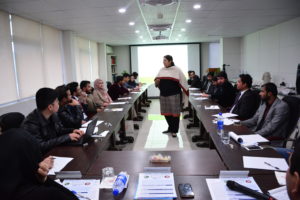
Mr. Aized Ali, Project Director Beyond Boundaries at CRSS, closing the session, said that the Beyond Boundaries confidence building initiative had in the same vein been a conscious effort by the Center to bridge the gulf of mistrust between the two neighbors by bringing together groups from both countries on one platform to put aside their biases and discuss the real issues to develop an understanding with compassion and empathy. He thanked the participants for their enthusiastic participation and especially thanked Ms. Naila Mir for her insightful workshop in a bid to bring positive change through the platform of CRSS. Participants also thanked CRSS for providing the opportunity to the youth of Pakistan and Afghanistan to sit together in a joint forum and engage in such critical thinking exercises to develop empathy and compassion towards their fellow-beings and contributing its part in making the world a better a place to live in.
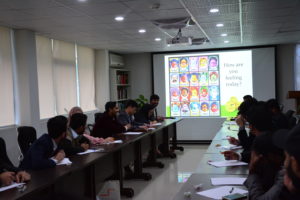
The workshop ended with a group photo following refreshments giving the participants from both countries the chance to interact informally with each other.
The workshop was the fifth in Afghan Studies Center’s series of scheduled workshops for Afghan and Pakistani youth. Through such activities, the center aspires for peace by engaging the youth from both sides in informed discourses, and capacity building through skills development workshops. Alongside such workshops, the center also runs a monthly dialogue series with participation of young men and women from Pakistan and Afghanistan to increase the much needed people to people contact that has been decreasing in recent years.
View more pictures here.
Afghan Studies Center: The Afghan Studies Center is an initiative by the Center for Research and Security Studies, Islamabad – an independent and non-profit think tank and advocacy center. One of the primary objectives of the Afghan Studies Center is to serve as a bridge between the youth of Pakistan and Afghanistan to interact with each other and join hands to become leaders of change and messengers of peace and cooperation beyond boundaries. To achieve this objective, the Afghan Studies Center invites young Afghans to share their story using our platform with the youth of Pakistan as well as the world.
© Center for Research and Security Studies (CRSS) and Afghan Studies Center (ASC), Islamabad.



